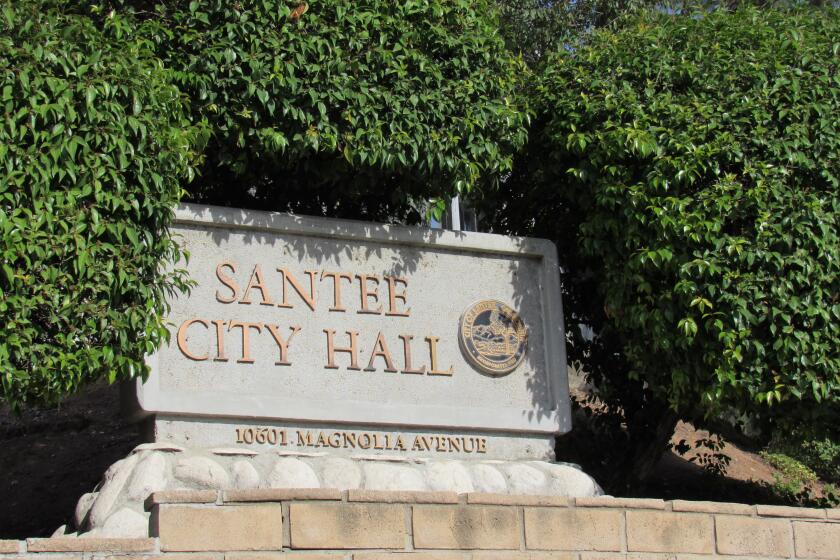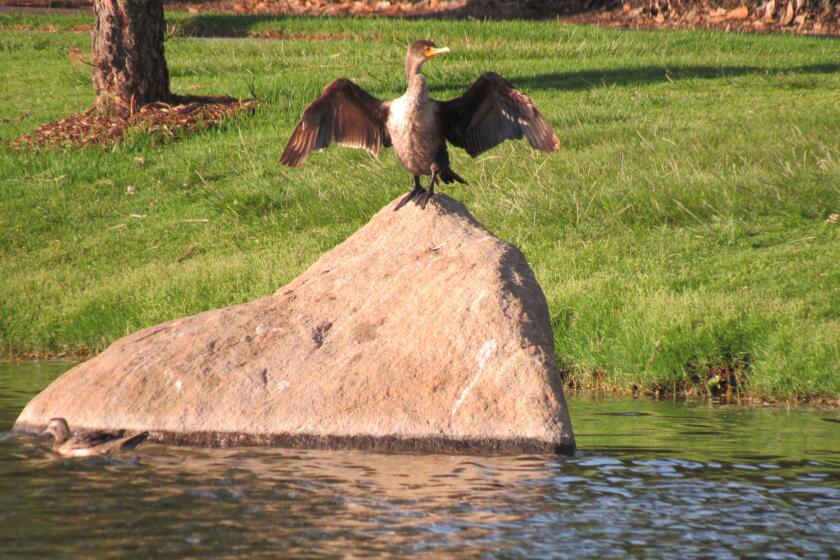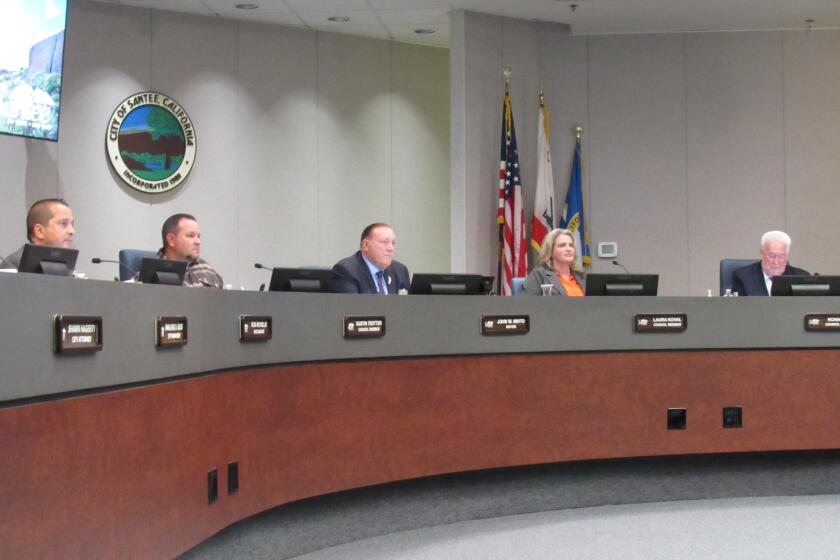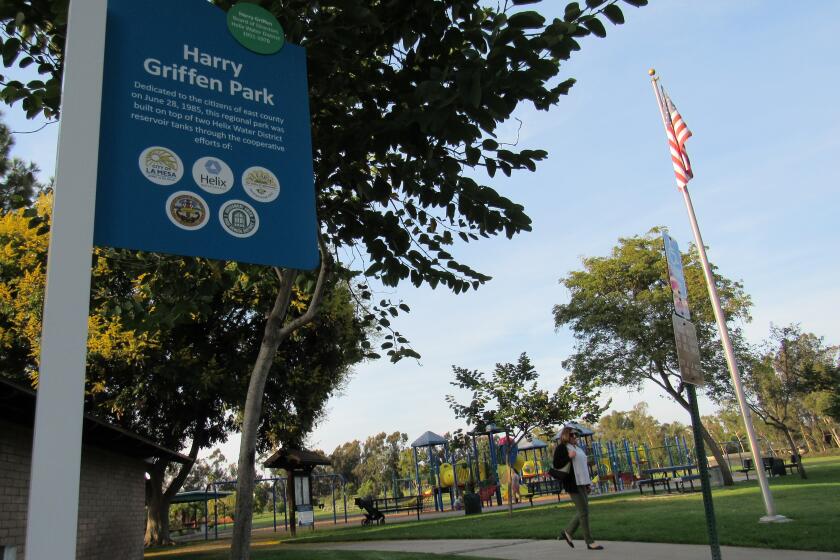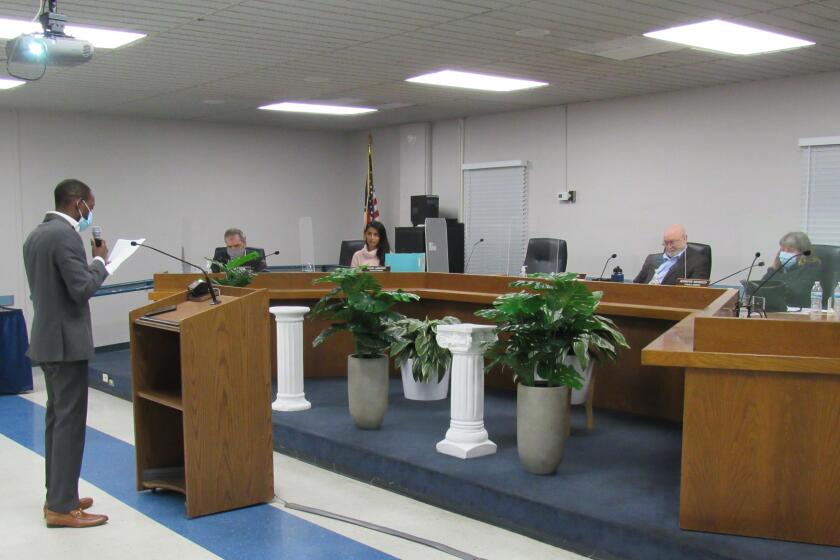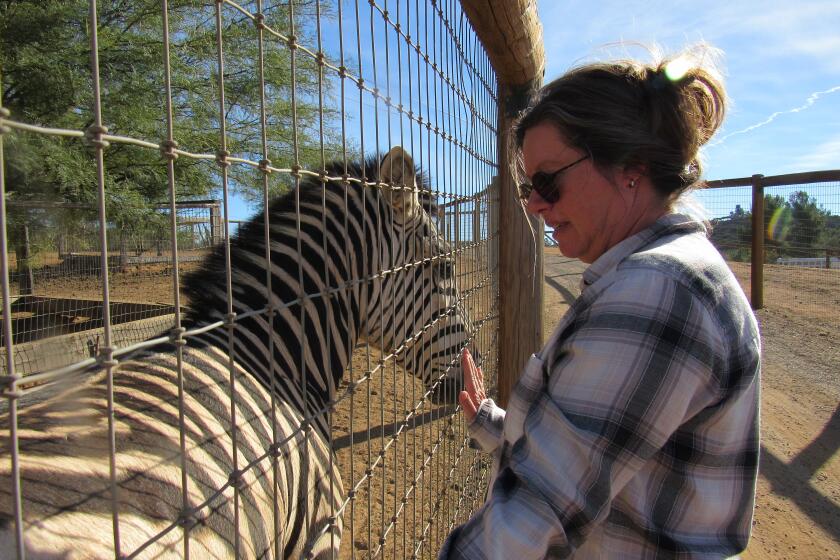Santee gets $1.2 million grant for Mast Park
The San Diego River Conservancy on Nov. 12 awarded Santee a grant of $1.2 million to help the redevelopment of Mast Park.
The money will be used to for drainage, stormwater treatment and habitat improvements. Mast Park is part of a 52-mile-long river park and trail system envisioned by the conservancy and other environmental groups to someday run parallel to the San Diego River from the Cuyamaca Mountains to where it ends at Ocean Beach.
The funding was approved by a unanimous vote of the board of the San Diego River Conservancy, a state agency charged with improving the river’s ecology and helping to create the crest-to-coast trail. San Diego County Supervisor Dianne Jacob is one of the board’s members.
The grant funds originate from Proposition 1, a $17 million ballot measure approved by county voters in November 2014 to pay for water infrastructure, and ecosystem and watershed protection projects. The grant funds are targeted to pay for water quality, habitat and public access improvements.
Santee had originally requested $2.2 million from the conservancy, with the city pitching in $5 million toward the $7.2 million project to upgrade facilities, parking and other amenities covering 31 acres of Mast Park on the north side of the river.
Engineering and design work on the park is supposed to begin in 2016.
The park, east of Carlton Hills Boulevard and south of Carlton Oaks Drive, is bounded by residential development to the north and east. The park was designed in the mid-1980s and has an inadequate drainage system, Santee Director of City Planning Bill Maertz told the conservancy.
Maertz said the city hopes to replant 13 acres at the east end of the park with low-growing native vegetation to create a stormwater infiltration area. The vegetation will create a dry retention basin to capture and treat stormwater runoff that enters the park from nearby residential uses. It will also include least Bell’s vireo habitat restoration.
The park is set to be regraded to create a system of bioswales and vegetated creek beds to capture runoff, reduce flooding and improve drainage. A bioswale is a low-gradient, open channel planted with vegetation that collects runoff.
An existing asphalt path in Mast Park, a potential pollution threat to water quality, is set to be replaced with decomposed granite. And the trail itself will be moved away from the river. A vegetated buffer of more than 5 acres of riparian habitat will be created.
Santee will be responsible in the first two years after the project is completed for generating a quarterly report on the status of the project and share it with the San Diego River Conservancy.
karen.pearlman@
sduniontribune.com

